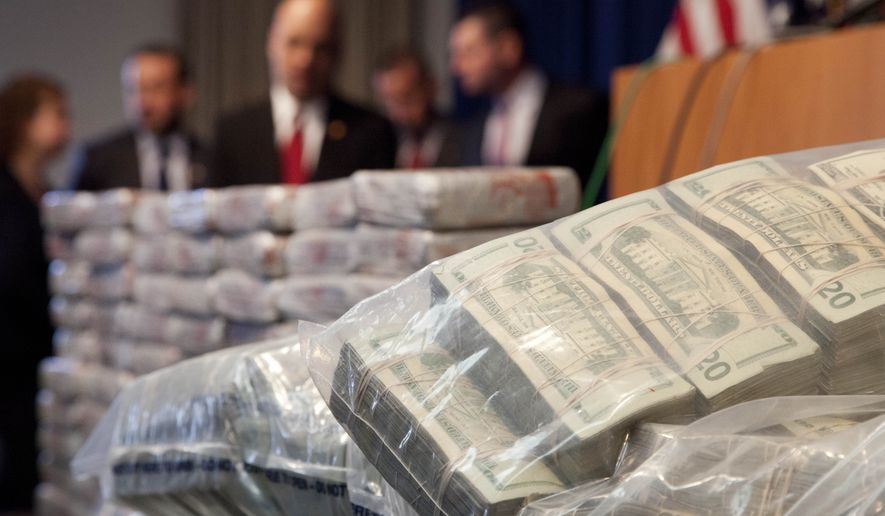The Drug Enforcement Administration has seized more than $4 billion in cash from people suspected of involvement in drug-related crimes as part of its asset forfeiture program since 2007.
But while the seizures are supposed to be made as part of drug investigations, a new watchdog report finds that the cash seizures aren’t always helping law enforcement advance criminal investigations.
A review of 100 instances in which DEA agents seized cash found that in 56 cases, agents were unable to verify that the confiscation of cash “had advanced or were related to ongoing investigations, initiated new investigations, led to arrests, or led to prosecution,” according to a Department of Justice Inspector General’s report released Wednesday.
The lack of any discernible connection between cash seizures and law enforcement efforts can feed into criticism that asset forfeiture programs are fueled by a desire to bolster police agencies’ budgets rather than to fight crime, the report warns.
“When seizure and administrative forfeitures do not ultimately advance an investigation or prosecution, law enforcement creates the appearance, and risks the reality, that it is more interested in seizing and forfeiting cash than advancing an investigation or prosecution,” the inspector general’s report states.
The 100 DEA seizures selected for review were from fiscal 2012 and all occurred without a warrant, the report states.
In one such case highlighted in the report, the DEA seized more than $70,000 in cash found inside an airline passenger’s luggage. But the DEA made no attempt to ever track down or contact the passenger to follow up on any aspect of the investigation. Agents took the money and left a seizure notice in the person’s luggage.
The inspector general’s report dings the Justice Department for not collecting enough information about asset forfeiture seizures to determine whether the seizures benefit criminal investigations or infringe on civil liberties.
Individuals can have their cash seized through asset forfeiture programs without ever being charged with a crime. In 81 percent of the more than 85,000 cash seizures conducted by the DEA from fiscal 2007 to fiscal 2016, $3.2 million was taken in administrative procedures — meaning that no criminal or civil charges were ever filed against the person from whom the money was seized.
The report recommends that the DOJ begin collecting information that could address those questions. It also faults the DOJ for not requiring that police officers from state and local agencies who work on federal task forces receive training on federal asset laws before they to carry out federal seizures.
Critics of asset forfeiture laws have long called for reform of the programs, asserting that seizure of cash is used primarily to pad law enforcement agency’s budgets rather than to crack down on criminal activity.
“These findings fundamentally undercut law enforcement’s claim that civil forfeiture is a vital crime-fighting tool,” said Darpana Sheth, a senior attorney at the Institute for Justice, which has long advocated for asset forfeiture reforms. “Americans are already outraged at the Justice Department’s aggressive use of civil forfeiture, which has mushroomed into a multibillion dollar program in the last decade. This report only further confirms what we have been saying all along: Forfeiture laws create perverse financial incentives to seize property without judicial oversight and violate due process.”
The DEA declined to comment on the report.
The Justice Department pushed back against the inspector general’s findings, writing in a response that the report “fails to acknowledge the scale of the problem that asset forfeiture is intended to combat,” noting that an estimated $2 trillion was laundered by criminals in 2016.
The DOJ response also faulted the inspector general’s report for relying in flawed data to compile the investigation and that the sample of 100 DEA cases reviewed were an “unrepresentative” sample.
• Andrea Noble can be reached at anoble@washingtontimes.com.




Please read our comment policy before commenting.